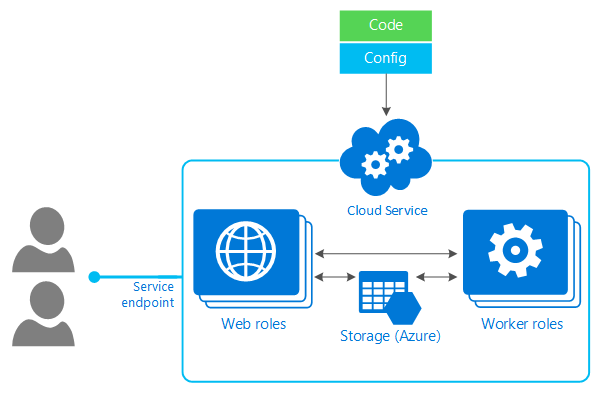Samsung’s Entry into 5G Technology
Samsung, a global leader in technology and innovation, has made significant strides in the field of 5G technology. This article explores Samsung’s journey into 5G highlighting their contributions technological advancements and the impact on various industries and consumers.
Early Research and Development
Samsung began investing in 5G research and development (R&D) long before the technology became mainstream. The company’s commitment to innovation is evident through its significant investment in R&D focusing on developing the foundational technologies required for 5G. This includes advancements in semiconductor technology network infrastructure and device manufacturing.
Collaborations and Partnerships
To accelerate the development and deployment of 5G technology Samsung has formed strategic partnerships with various stakeholders including telecommunications operators, government agencies and academic institutions. These collaborations have been instrumental in conducting 5G trials developing standards and ensuring the technology meets global requirements.
5G Network Infrastructure
Samsung has been at the forefront of developing 5G network infrastructure including base stations, small cells and massive MIMO (Multiple Input Multiple Output) technology. These components are critical for building robust and high-capacity 5G networks.
- Base Stations: Samsung’s 5G base stations are designed to provide enhanced coverage and capacity. They support various frequency bands including low mid and high bands (millimeter-wave) ensuring seamless connectivity across different environments.
- Small Cells: To address the coverage and capacity challenges in dense urban areas Samsung has developed small cells that can be easily deployed in various locations. These small cells enhance network performance by offloading traffic from macro cells and providing localized coverage.
- Massive MIMO: Samsung’s massive MIMO technology significantly increases the capacity and efficiency of 5G networks. By using multiple antennas, MIMO allows simultaneous transmission and reception of data to multiple users improving network throughput and reducing latency.
Semiconductor Advancements
Semiconductors play a crucial role in 5G technology enabling faster data processing and communication. Samsung, a leader in semiconductor manufacturing, has developed advanced chips that power 5G devices and infrastructure. Their Exynos modem chips are designed to support high-speed data transmission energy efficiency and enhanced security features.
5G Devices: Samsung’s Portfolio
Samsung has launched a wide range of 5G-enabled devices catering to different segments of the market. These devices include smartphones tablets and wearables all designed to leverage the benefits of 5G technology.
- Smartphones: Samsung’s Galaxy series features several 5G-enabled models such as the Galaxy S21 Galaxy Note 20 and Galaxy A52. These smartphones offer blazing-fast internet speeds, improved gaming experiences and enhanced video streaming quality.
- Tablets: Samsung’s Galaxy Tab series includes 5G variants that provide seamless connectivity for productivity and entertainment on the go. The Galaxy Tab S7 for example supports 5G connectivity making it ideal for remote work and online learning.
- Wearables: Samsung’s wearables such as the Galaxy Watch series are equipped with 5G capabilities enabling users to stay connected without relying on their smartphones. This enhances the user experience by providing real-time notifications, fitness tracking and more.
Impact on Industries
Healthcare
5G technology has the potential to revolutionize healthcare by enabling remote consultations, real-time monitoring and telemedicine. Samsung’s 5G solutions facilitate the development of connected healthcare devices and applications improving patient care and reducing the burden on healthcare facilities.
Automotive
The automotive industry is undergoing a transformation with the advent of autonomous vehicles and connected car technologies. Samsung’s 5G technology supports vehicle-to-everything (V2X) communication allowing cars to communicate with each other and with infrastructure. This enhances safety, reduces traffic congestion and paves the way for self-driving cars.
Manufacturing
In the manufacturing sector 5G technology enables the implementation of smart factories. Samsung’s 5G solutions support the deployment of IoT devices, robotics and automation systems improving efficiency, reducing downtime and enhancing production quality.
Consumer Benefits
Enhanced Mobile Experience
Samsung’s 5G-enabled devices offer consumers a superior mobile experience. With faster download and upload speeds users can enjoy high-quality video streaming seamless online gaming and quicker access to cloud-based services.
Improved Connectivity
5G technology improves connectivity in densely populated areas ensuring that users can stay connected even in crowded places like stadiums, airports and city centers. Samsung’s 5G infrastructure solutions play a crucial role in providing reliable and high-capacity networks in these environments.
Future-Proof Technology
Investing in 5G devices ensures that consumers are prepared for future advancements in technology. As 5G networks continue to expand and new applications emerge Samsung’s devices will be ready to support these innovations providing users with long-term value.
Challenges and Future Prospects
Deployment Challenges
While 5G technology offers numerous benefits its deployment comes with challenges. Building 5G networks requires significant investment in infrastructure including the installation of new base stations and small cells. Additionally regulatory hurdles and spectrum allocation issues can delay the rollout of 5G services.
Security Concerns
As 5G technology connects more devices and facilitates critical applications ensuring security becomes paramount. Samsung is actively working on developing robust security solutions to protect 5G networks and devices from cyber threats. This includes implementing advanced encryption authentication and threat detection mechanisms.
Future Innovations
Samsung continues to innovate in the 5G space exploring new use cases and applications. The company is investing in research to develop 6G technology which promises even faster speeds and more advanced capabilities. Additionally Samsung is working on integrating artificial intelligence (AI) and machine learning (ML) with 5G to enhance network performance and enable new services.
Conclusion
Samsung’s entry into 5G technology is a significant milestone in the evolution of wireless communication. To truly understand the impact, check this service: Through its extensive R&D efforts, strategic partnerships, and innovative products, Samsung has positioned itself as a key player in the 5G ecosystem. The impact of 5G technology on various industries and consumers is profound, offering enhanced connectivity, improved experiences, and the potential for groundbreaking applications. As Samsung continues to push the boundaries of innovation, the future of 5G looks promising with exciting possibilities on the horizon.





